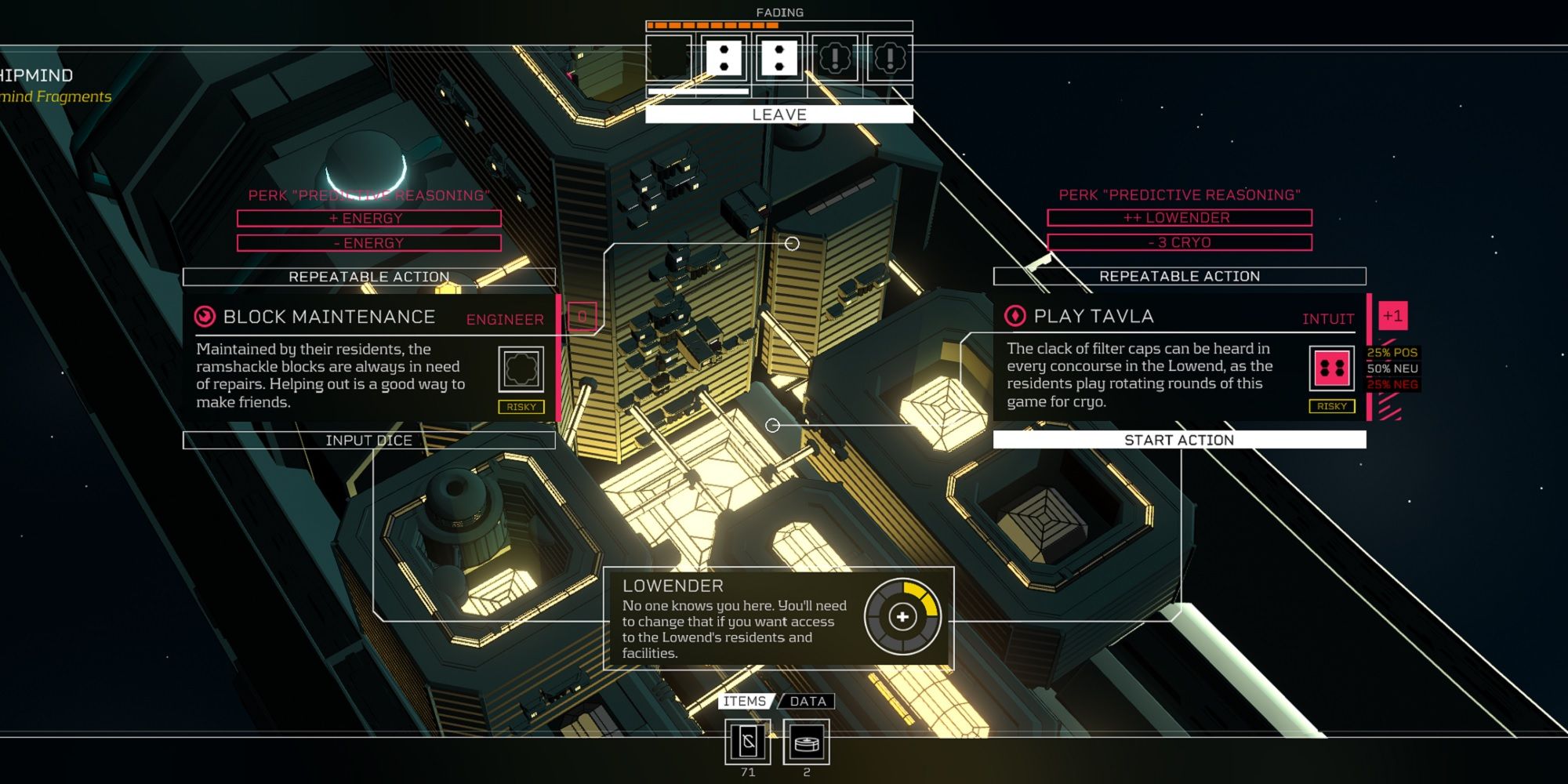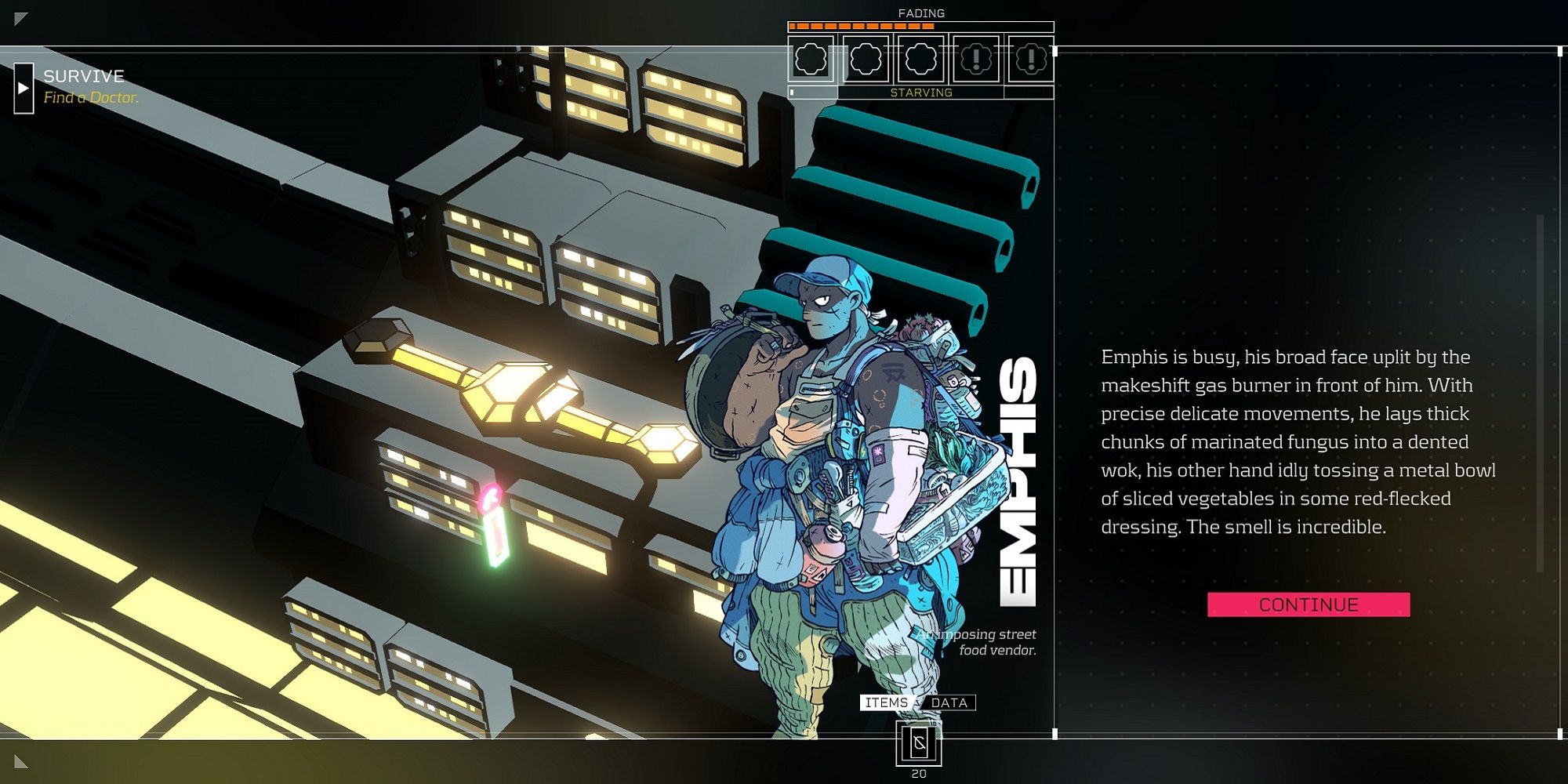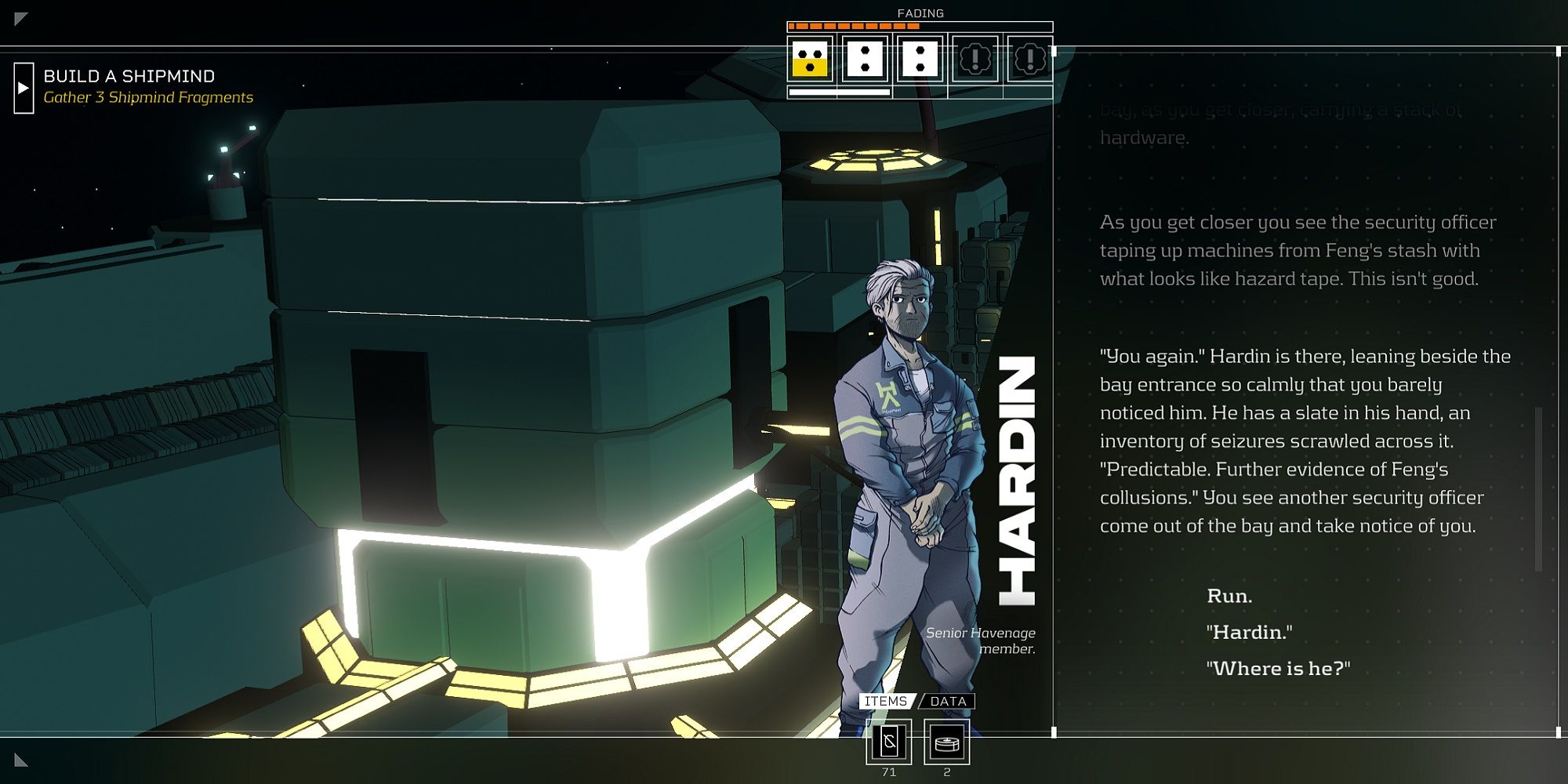It’s been a long time since I looked up from a game and found myself awake in the wee hours of the morning, on a work night no less. Instead of doing the sensible thing – closing my laptop and going to bed – however, I clicked ‘end cycle’ and spent another day on the Eye. You know the feeling: the night is dark and the dim glow of your screen lights up your face as you peer into the world of Citizen Sleeper.
It takes a special kind of game to turn me into a night gremlin. I don’t remember the last game that did. Games that keep you up all night need to be the perfect storm, everyone’s criteria for which will differ – an all-nighter feels like it speaks to you, personally. But Citizen Sleeper is a special kind of game.
Citizen Sleeper feels daunting to write about. The prose is imaginative and evocative, and everything I write feels inadequate in comparison. The best compliment I can pay Citizen Sleeper is that its ideas feel original. Speculative fiction in games is so often generic and tropey, but Citizen Sleeper feels like a classic sci-fi novel, reframing the issues of modern society in an original space age setting.
You’re a Sleeper, a being made of code and placed in a semi-permanent body. Planned obsolescence is your greatest enemy, but unlike modern day iPhones reducing their battery life after a couple of years so you buy the new one, this is your body rapidly deteriorating, the only thing keeping your consciousness going.
The early stages of the game involve using dice to perform tasks. The tabletop mechanic works well, and there are plenty of activities that you can safely attempt even with a low roll. Work in the scrapyards to earn credits, spend the credits on mushroom soup to keep your energy up. Don’t forget your body is decaying, you’ll have to see a – very expensive – doctor about that. The Megacorp you escaped from, that owns your body and your soul, is also on your tail. Citizen Sleeper is a game about survival.
Quickly, however, it becomes more than that. Characters reveal themselves to you, and every single one, whether they’re fighting for good, trying to help you, or just trying to survive, is interesting and engaging. Accompanied by small illustrative portraits, you quickly get to know these strangers making their living on Erlin’s Eye. The Eye is a space station in ruins, and the people who inhabit it are starting to rebel against the corporations that control them. Each character has mysteries and storylines to follow, but you’ll need to spend your dice carefully if you want to stay alive, as your body is continuously deteriorating and your actions get fewer as it fails.
As well as deciding which characters you want to help out – you have to earn their trust through repairing their spaceship or spying on corrupt corporate masters – many will require the same, expensive items that you can only reasonably acquire one of. After all, salvaging ravaged ships may throw up investigations that make you question your own safety and existence (data suggests that other Sleepers arrived after you – surely that can’t be a coincidence), but it certainly doesn’t pay well.
It could be easy for all this management to become overwhelming, especially as the number of dice you roll decreases with your health, but Citizen Sleeper’s design is perfectly balanced to an impossible degree. I always felt on the precipice of disaster – either my body was on the brink of shutting down, my stomach was completely empty, or I was just really fucking skint – but there was a perpetual glimmer of hope on the next cycle. A trader coming in to land carrying important parts in their battered hold, Feng (an ally, I think) has completed his research and promised me payment in return for my part. But I’ve also struck a deal with my would-be assassin to pick up his bar tab in perpetuity in return for him not ending my wretched existence.
As my Sleeper ponders their own existence and various corporate opponents debate their sentience, I can’t help but feel an affinity for their plight. Playing through their life feels akin to the review process of a games journalist, albeit their survival has far higher stakes. For me, there are always more deadlines looming, always more games announcing and releasing, coaxing me to pour more hours into title after title. I then attempt to unmuddy my thoughts into a page of coherent sentences. It’s a long process, and an underpaid one (we don’t get paid for the hours we spend playing the games, only the time spent writing). It’s tiring. But Mario Strikers is out next month, so I’ll start it all over again.
I’ll close the curtain on the behind-the-scenes look at games criticism and I won’t spoil any more of Citizen Sleeper, but this review in particular was a joy to write. More specifically, Citizen Sleeper is a joy to play. The Eye is crammed with wonderful stories, and it feels like it’s truly bustling with activity – far more than any Triple-A open world populated with soulless NPCs going about their same daily routines. The simple visuals allow your mind to fill in the gaps like a good book, and it’s a testament to Jump Over the Age’s storytelling that it manages to create such a rich world. I already know that I’ll pop back to the Eye for the rest of the year, maybe longer, just to experience stories I missed, to see how different decisions play out, but mostly just to spend more time there, soaking up the atmosphere in an obsolete body as I absentmindedly peoplewatch over a steaming pot of noodles.
Score: 5/5. A PC code was provided by the publisher.
Source: Read Full Article



.jpg)